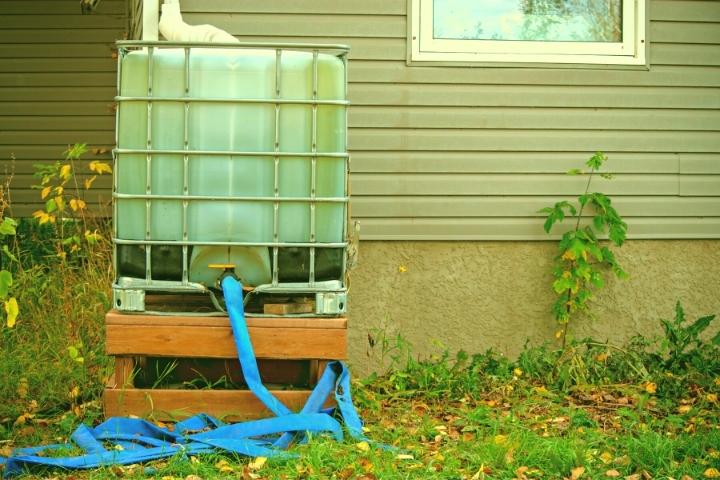What is Grey Water? | +Plus 5 Cool Benefits!
I know you like staying clean – taking your showers, doing your laundry, and keeping your kitchen sparkling throughout the time. But, have you ever stopped to ask yourself how water from such activities is classified or where it goes?
Related article for RV enthusiasts: What is Grey Water in an RV?
Well, grey water refers to all the wastewater that comes from domestic sources like the kitchen, laundry, bathroom, and even untreated water from your private spa.
Is it REALLY beneficial? And how does it help in the efforts towards water conservation?
Find out about all these below…
Defining Grey Water (Is It Dangerous?)
Given that greywater comes from light domestic activities, it means that it’s not as toxic as black water released from the toilet.
Sure, in plain sight, greywater will almost always look disgusting since it may contain grease, fats, hair, and other solid wastes. But with the right system, you can recycle this water and redirect it to other uses around your household.
In the long run, you’ll end up saving a lot of water from other reserves that would have been used to perform such tasks.
Note: Grey water still contains a significant number of bacteria that are quite hazardous to human health. So, as you plan to recycle it, ensure that you only use it in your backyard garden or front lawns.
Benefits of Recycling Grey Water

1. Conserves Fresh Water Resources
We use about 25 gallons of water per day handling various things around the house on average. And this is per adult person…!
Multiply this by the number of individuals in your house and you’ll get how much water you averagely spend collectively as a household.
It’s probably lots of water, right?!
Well, if you collect and recycle some of this greywater, you can drastically cut back on freshwater that would’ve been used on things like flushing and watering your landscape plants.
This, in many ways, helps sustain your freshwater reserves, especially if you live in arid regions!
2. Saves Your Energy Consumption
Energy conservation comes from a long chain of events stemming from your house.
If you reuse more of the recycled grey water, you won’t need to be pumping up freshwater from your reserves all the time. This, in turn, helps you save energy that you’d have used to power the water pumps.
And from another viewpoint…
Reusing grey water also means that your septic tank won’t be filling up as fast as when you don’t recycle.
This means that you won’t need to call in septic service companies to empty your tank as often – saving on fuel energy that they’d have to spend to get to your house and pump the tank.
If we are to be candid, this also goes a long way in reducing our carbon emissions.

3. Landscape Beautification
If you love landscapes, grey water can act as an alternative water source for you to use on your plants. The beauty is that you always produce grey water, so you’re assured that your plants will always have a regular water supply for irrigation.
With proper mulching, your garden could be the next Eden…!
4. Reduces the Use of Chemicals
When you adopt the recycling and reuse of grey water, you’d eventually curb the number of chemical fertilizers that you need to keep your lawn and garden blooming. This is because grey water carries several essential nutrients that your plants need to grow.
On a grander scale…
Reusing your grey water also means less sewage flowing into water treatment plants. This naturally means that your county treatment plants won’t have to use as many chemicals to treat the effluent.
Well, this is very important for everyone as such chemicals sometimes find their way into the environment and end up polluting it.
5. Supplies Underground Water Reservoirs
When you use recycled grey water for your garden and lawn irrigation, the dispensed water gradually seeps into the soil below.
Now, as it goes deeper into the ground, the soil acts as a natural filter, removing all the impurities that could harm plants and cause disease in humans.
By the time it reaches the water beds usually found underground, it’ll have turned into clean water – adding to the volume stored in the reservoir. This process is very vital as it replenishes underground water that usually supplies wells, springs, and other water sources.
Tips for Collecting Grey Water

Before you set out to actively start collecting greywater, there are a few pointers that you should have that will ensure you get the best, usable greywater sample.
Some of the 4 main rules are:
- Avoid using cleaning solutions (either for laundry or utensils) that have a very strong presence of salts. When high concentrations of salt accumulate in the soil, it can kill your garden plants over time.
- Do not use harsh cleaning detergents around your house regularly as this will compromise the quality of greywater collected. These harsh chemicals have a tendency to kill the good bacteria that breaks down solid waste in your septic tank (if you have one). This may result in a full septic tank frequently, leading to regular backflows into the main house.
- Do not keep the grey water stored for more than 24 hours. This is because the sewer bacteria would’ve acted on it and made it quite useless in any other place that isn’t a septic tank. If not handled well, it can make your house smell like a sewer.
- Distribute the greywater evenly when applying it to your garden. Keeping the hose stationary will oversaturate one place and eventually make it toxic for plant growth.
Frequently Asked Questions
1. Is using greywater really legal?
Using grey water is pretty much legal in most US states.
The use of grey water to supplement subsistent water supply has been widely promoted in arid areas that receive little to no rainfall at all. This practice has received tremendous appraisals from conservationists and water managing bodies alike.
Restrictions in the remaining states are also not as stringent, provided you meet the regulations set for setting up such a system.
That said, make sure that you first check in with your state’s county office before installing your grey water recycling system.
…Best to be on the good side of the law, right?!
2. How can I store grey water?

Grey water is mostly stored in large, weather-proof containers. You’ll need to get one fixed or built just in case you don’t have one already.
You’ll also have to call in the professionals to help you install an effective piping system that will collect grey water from your kitchen sinks, bathroom, and laundry room into the storage.
Remember to always put the water into use within 24 hours to get the best out of it. Storing grey water any longer will only cause it to decompose and smell like sewage.
3. What is the difference between grey water and black water?
The main difference between grey and black water lies in their contents.
For instance, grey water consists only of wastewater collected from washing dishes, laundry duties, and the shower. It’s usually soapy and may also contain traces of grease.
On the other hand…
Black water refers to wastewater collected from your toilet and its main contents are fecal and urine waste. It’s normally tapped directly into the main sewage outlet for quick disposal.





